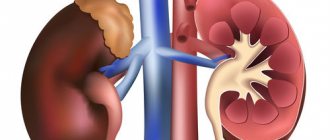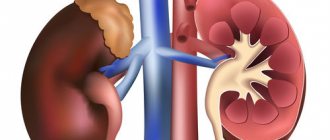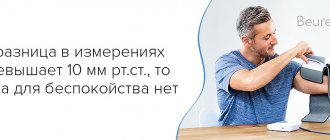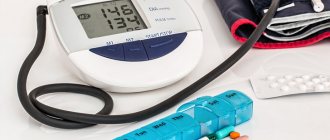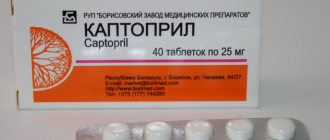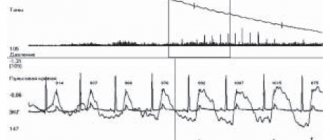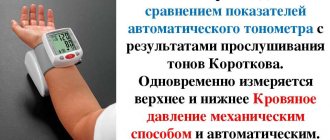Why does blood pressure rise in the morning?
The reasons for the increase in blood pressure after waking up lie in the biochemistry of the processes occurring during sleep. This condition often occurs due to a number of factors related to:
- with overstrain, nervous and physical;
- unhealthy diet;
- bad habits;
- a number of diseases.
Blood pressure (BP) usually rises at night and in the morning. After all, first after falling asleep, the body relaxes, the heartbeat becomes slow. But when the rapid phase of sleep begins, the body’s activity increases. And along with it, breathing quickens, and pressure rises slightly, and even body temperature becomes higher.
Therefore, anyone who wakes up immediately after this phase of sleep experiences these symptoms. These biochemical processes are not so scary. But with high levels of systolic and diastolic pressure, stroke and heart attack are possible. And this is dangerous for human life.
Stress and nervous tension
Blood pressure will rise in those who worry a lot during the day about problems at work and at home or are constantly under emotional or nervous tension. At night, the body relaxes and problems go away, but blood pressure rises sharply after sleep. And this is due to the increased release of adrenaline into the blood. This causes the heart to beat faster, which leads to an increase in vascular tone and the appearance of signs of hypertension.
If the heart muscle is constantly under tension, then it is not far from a hypertensive crisis.
Poor nutrition
The role of food for the normal functioning of the cardiovascular system is great. If in the evening you eat a lot of fatty foods, pickles, fried foods, smoked foods, buns and sweets, then it is clear why the pressure is not normal. All these products lead to the deposition of cholesterol in the blood and obesity, which is why signs of hypertension appear in the morning.
Bad habits
After each cigarette smoked, the level of systolic and diastolic pressure increases. The number of heart beats per minute and its minute volume also increase. The property of cigarette smoke is that it promotes vasoconstriction of peripheral arteries. And blood clots form more often in smokers, since a cigarette helps increase the level of cholesterol and fatty acids.
Even 100 grams of alcohol taken at night immediately enters the bloodstream, where it circulates for 5 to 7 hours. The heart rate begins to increase to 100 beats per minute. There is more adrenaline and norepinephrine in the blood. At this time, the person’s condition is similar to when they are experiencing a stressful situation. This is why blood pressure rises during sleep.
What diseases cause high blood pressure
Among the diseases that lead to morning increases in blood pressure include:
- renal failure, inflammatory processes of the genitourinary system;
- atherosclerosis;
- heart failure.
Disturbances occur as a result of menopause and premenstrual syndrome in women. Elderly people have many problems. High blood pressure makes them unable to sleep and they feel unwell in the morning. And the hormonal changes in the body are to blame. After all, it is the endocrine glands, working unstably, that lead to sleep disorders.
Causes of morning increases in blood pressure in women
Women may face this problem due to high psycho-emotional stress and frequent stress. A morning increase in blood pressure sometimes occurs against the background of diseases of the genitourinary system, which are accompanied by the problem of removing excess fluid from the body. Its excessive concentration in tissues may be the reason why blood pressure rises in the morning.
- What to do if your child has knee pain in the morning
Taking some birth control pills can increase estrogen levels. As a result of its excess, blood pressure may rise. Moreover, this phenomenon is observed mainly in the morning.
Hypertension cannot be excluded as a provoking factor. This disease is usually caused by a violation of the tone of blood vessels. As the lumen decreases, blood flow becomes difficult in them.
How to determine if your blood pressure level has increased
Every person whose blood pressure levels rise needs to be able to listen to the body. Even without a tonometer, you can say about the onset of hypertension if:
- headache;
- semi-fainting state;
- spots in front of the eyes;
- there is noise in the ears.
Pathological conditions arise after waking up. At the same time, weakness and reluctance to get out of bed and do something appear. It is imperative to measure your blood pressure if you have such symptoms. A sharp jump in it is fraught with dangerous consequences.
Drug treatment for high blood pressure
If in the morning after waking up the readings on the tonometer are very high, the phenomenon appears constantly, then you need to consult a doctor.
Most likely, the doctor will prescribe medication to improve the condition. The tablets make it possible to eliminate unpleasant sensations in the morning, and you will wake up without signs of illness. A specialist can choose medications and a treatment regimen only after diagnosing the patient and determining the causes of hypertension. To reduce morning highs, the following are often used:
- Kapoten.
- Captopril.
- Physiotens.
It is not recommended to select medications and take them yourself. More often, the composition contains toxic elements that can disrupt the functioning of the body as a whole, while the pressure will not decrease. To treat hypertension, doctors often recommend taking tablets from the group of beta blockers, which have been used for many years. Calcium antagonists are also prescribed.
First aid
If the pressure has risen significantly, then help the patient urgently. He is placed on high pillows so that his head, along with his shoulder blades and shoulders, is raised 30 degrees. The flow of fresh air into the room is important, so open a window or turn on a fan. The patient should not have tight clothing. It is necessary to unfasten the collar, loosen the belt or belt. If there are dentures in the mouth, they are removed.
Calling an ambulance is mandatory so that doctors can bring the patient back to normal and prescribe treatment. Before the specialists arrive, you need to take a hot foot bath. A replacement for the procedure is a heating pad, which is filled with hot water and applied to the feet.
To lower blood pressure, you are given antihypertensive medications to take. Glycine, which is placed 1 gram under the tongue, will ease the course of the crisis. For headaches, you can take Baralgin and 0.5 tablets of Aspirin in soluble form. If the patient’s blood pressure has risen sharply for the first time and there is no medication at hand, then it can be reduced by holding your breath for a long time.
Symptoms of hypotension
The symptoms that occur are usually caused by a lack of blood supply to the brain and heart. Here are typical manifestations1:
- headache;
- dizziness, imbalance;
- nausea;
- severe weakness;
- memory impairment;
- decreased performance;
- intolerance to bright light, harsh sounds, stuffiness.
Deterioration in health is accompanied by pain in the heart, rapid or slow heartbeat, and rhythm disturbances.
As soon as such a person gets out of bed in the morning and starts walking, he feels worse due to an even greater decrease in blood pressure, so he wants to go back to bed. Additional symptoms:
- coldness and impaired sensitivity of the extremities (fingers);
- symptoms worsen due to fatigue, stress, lack of sleep, acute infections and exacerbation of any chronic diseases.
Treatment options
You cannot lower your blood pressure on your own. If a person regularly feels unwell at night during sleep and in the morning, then it is necessary to visit a doctor who will select treatment methods. They will be based on diagnostic data.
Regularity of drug therapy
To prevent blood pressure from rising in the morning, take the following tablets:
- Captopril;
- Enalapril;
- Kapotena;
- Prestarium.
You should not take medications without a doctor's prescription. Beta-calcium channel blockers are most often used for hypertension. But they have many side effects and contraindications. And only a doctor can determine what a particular patient needs. You need to get ready to take antihypertensive drugs regularly, otherwise high blood pressure in the morning will be constant.
It is impossible to cope with the initial stages of hypertension without medications. Treatment is combined with a proper diet, excluding foods that cause the development of atherosclerosis and thrombosis. You can clean blood vessels using physiotherapy and traditional medicine.
Folk recipes
If hypertension occurs upon awakening, it is advised to drink:
- beet juice with honey;
- water, diluting 2 tablespoons of corn flour in a glass and leaving it overnight;
- viburnum juice;
- decoction of dried black currant berries;
- motherwort herb extract.
In the initial stages of hypertension, take a mixture of lemon or orange peeled in a meat grinder and sugar. It is enough to eat a teaspoon of the mass three times a day. The course of treatment is 2–3 months. For high blood pressure, it is useful to eat wild strawberries, black currants, and potatoes baked in their skins.
Aromatherapy
When there is a tendency for blood pressure to increase during sleep, it can be treated with aromatherapy methods. A positive result will come from daily baths with essential oils of sage, rose, geranium, chamomile, lavender, juniper, and marjoram. A mixture of two drops of these oils is best. They are added to 20-30 milliliters of olive oil, and then the resulting mixture is poured into hot water.
You need to add a few drops to the aroma lamp before going to bed. Essential oils are also suitable for self-massage of the chest. Rub the oil in smooth movements, moving from the sides of the body to the heart area.
Congenital or acquired heart disease
Heart pathologies have a direct impact on blood pressure. This is due to the fact that this organ plays the role of a kind of pump. Many indicators of the body’s homeostasis, including blood pressure levels, depend on the effectiveness of its work. There are both congenital pathologies acquired at the stage of the formation of the blood supply system, and acquired ones.
The first group of diseases occurs as a result of intrauterine infections, genetic disorders or exposure to harmful factors on the body of a pregnant woman and the fetus.
Heart diseases
The second group of diseases appears after birth and can be caused by the following provoking elements:
- infections;
- injuries;
- the presence of common diseases leading to disruption of the myocardium.
Prevention
You can maintain normal blood pressure by:
- avoiding stressful situations, worries;
- limiting cigarettes and alcoholic beverages;
- reducing salt intake;
- walking at a rhythmic pace for half an hour a day;
- refusal of strong coffee and tea;
- switching from one type of activity to another;
- mastering methods of mental self-regulation.
By properly planning your time and maintaining your usual vitality, you can prevent high blood pressure in the morning and at night.
Heart attacks and strokes are a consequence of a jump in blood pressure. They most often occur in the morning or at night. You need to know what to do so that the pressure remains normal and does not rise. This way you can increase your life expectancy and remain active in old age.
When and how should blood pressure be measured?
Regular use of a blood pressure monitor will help people monitor blood pressure fluctuations. This will help identify episodes of morning hypertension.
Before measuring blood pressure:
- Empty your bladder.
- Rest quietly and comfortably for 5 minutes before taking your blood pressure.
- Avoid smoking, drinking alcohol, or exercising for 30 minutes after taking your blood pressure.
Take your blood pressure at the same time every day.
- Sit with your back straight, legs uncrossed, and feet flat on the floor.
- Place your hand on a flat surface so that your shoulder is at heart level.
- Place the cuff on your arm so that the bottom of the cuff is directly above the elbow crease.
- Keep a record of your readings, this can help your doctor determine the optimal course of treatment.
Important numbers
The cardiologist advises focusing on the following parameters. “The optimal blood pressure is considered to be 120 and 80 mm. rt. Art. High, but still normal blood pressure is considered to be 130 and 80 mmHg. Art. We take 140 and 90 mmHg as pathology. Art. This is called arterial hypertension, a chronic disease and, unfortunately, incurable,” says Azizkhon Askarov.
At the same time, as the specialist notes, it is completely controllable if a person takes himself seriously. “The pressure is between 140 and 90 mm Hg. requires a trip to the doctor to be prescribed treatment, and not always medication. If the patient follows the recommendations and manages to correct the situation, then it is possible to prescribe therapy without medications. However, you should not be afraid of prescribing drug therapy: modern drugs are quite effective and safe. For example, it is quite possible to take one tablet a day so that a person with arterial hypertension has a normal blood pressure level. In this case, he will live a long and healthy life,” says the cardiologist.
It is imperative to monitor your blood pressure, warns Azizkhon Askarov. Its fluctuations and high levels are fraught with serious complications. “Arterial hypertension causes severe complications: strokes, heart attacks, blindness, dementia, thrombosis, severe damage to internal organs (primarily the kidneys) and death,” emphasizes cardiologist Askarov.
Under pressure. What medications for hypertension are the most effective and safe Read more
Importance of detecting hypertension during apnea
It is carried out using a small device that is placed on the patient’s arm for a day; every half hour (you can set other time intervals) it measures the pressure and stores the obtained data in memory.
The results of blood pressure monitoring performed in patients with sleep apnea and hypertension indicate that they have little or no reduction in blood pressure at night, which should be observed normally. At the same time, its greatest increase is observed in the pre-dawn or morning hours, which can be explained by nocturnal hypoxemia. Apnea crises also most often occur in the morning.
Of the two numbers obtained when measuring blood pressure (120/80, 150/90, etc.), the second (diastolic blood pressure) increases the most in patients. It is interesting that in some patients, 30-40 minutes after waking up, the pressure decreases independently, without the help of medications: as soon as a person begins to breathe fully, the consequences of the hormonal release decrease or are eliminated by themselves.
Unfortunately, neither data published 10 years ago nor similar results from more recent studies have prompted changes in the treatment of hypertension associated with sleep apnea. Many cardiologists and therapists still perceive this syndrome as a minor deviation in the patient’s health that does not require attention, and therefore treat patients only with antihypertensive drugs. This is not always effective, because in many cases hypertension, when combined with apnea syndrome, turns out to be resistant to such treatment.
In 83% of cases, when treatment of hypertension with 3-4 drugs is ineffective, obstructive sleep apnea syndrome occurs. At the same time, the use of CPAP therapy gives an effect in the first days of use and allows not only to reduce the dosage of medications, but sometimes to completely abandon antihypertensive therapy.
